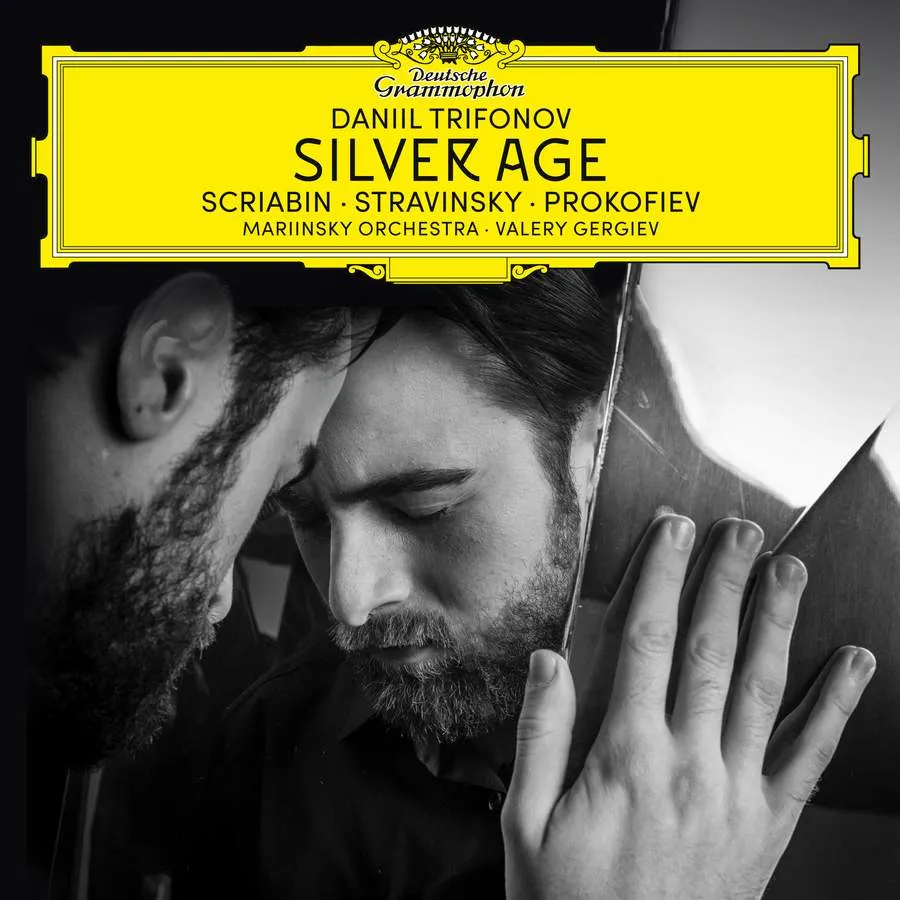
Silver Age
Prokofiev: Piano Concerto No. 2 in G minor, Op. 16; Sarcasms, Op. 17; Piano Sonata No. 8 in B flat major, Op. 84; Gavotta, Op. 95 No. 2; Scriabin: Piano Concerto in F sharp minor, Op. 20; Stravinsky: Serenade in A; The Firebird Suite; Three Movements from Petrushka Daniil Trifonov (piano); Mariinsky Orchestra/Valery Gergiev DG 483 5331 139:59 mins (2 discs)
Not everything in this imaginatively-planned programme comes from Russia’s pre-revolutionary Silver Age. Stravinsky’s gleaming Serenade, which some would say is neo-classical, (though as so often with this composer, it’s neo-everything), dates from 1925, and the great terror of Prokofiev’s Eighth Piano Sonata spans most of the Second World War. The obviously very personal choice of the quirky Gavotte from the 1940s ballet Cinderella – one of the ten pieces the composer transcribed for piano – further extends the picture, though it’s true that the young composer had also experimented with very similar neo-classical forms. Scriabin’s Piano Concerto actually belongs to the end of the 19th century, though it’s silvery in feel.
Yet this is certainly a golden-age collection from Trifonov, and it’s admirable that these two discs are always more about the music than about him, when as a recording superstar he could have taken an easier option. If I were to choose a compendium of Russian (mostly) 20th-century works for solo piano and piano-with-orchestra, this would be close.
Each interpretation is at the very top of the list, even if this is not the only way to play that Prokofiev masterpiece. Steven Osborne rips more terrifyingly into the whirlwinds on Hyperion, but no one can make the central minuet (Andante sognando or ‘dreaming’) more somnambulistic than Trifonov. I also like to hear Osborne lash out in the Sarcasms, yet Trifonov’s frozen, barely audible moments are unique to the magic he so often creates. Their obvious counterpart comes on the second disc with the schizoid antics of the poor puppet Petrushka in the second of Stravinsky’s three movements from the ballet. This was the germ of the work, a concert-piece conceived for piano and orchestra, and in the solo version Trifonov is the master musician in morphing shapes. He goes full heavy-metal in the Infernal Dance, first of three Firebird numbers transcribed by Guido Agosti.
The partnerships with Gergiev and the Mariinsky Orchestra, released from the oppressiveness of Alexander Toradze (fitfully revelatory in all five Prokofiev piano concertos) and Dennis Matsuev (one to avoid), find soloist, conductor and orchestra at their collaborative best. This is a monstrously beautiful account of the Titanic terror in Prokofiev’s Second Piano Concerto – can anyone play this better today? – and Scriabin’s early gift to be simple in the genre is handsomely varnished; the virginal candour of the Theme and Variations shines as unique in the concerto repertoire. Continuities are startling – some very individual attaccas between various movements throughout – while it’s typical of Trifonov’s mercurial intelligence that he knows when to be free and when to be crisply even in the variousness of the Serenade (rubato in the Hymne, metrical spring in the Rondoletto). I learned new things about every work here, but the way Trifonov makes every moment live is simply astonishing.
Read more reviews of the latest Stravinsky recordings here
Read more reviews of the latest Prokofiev recordings here
David Nice